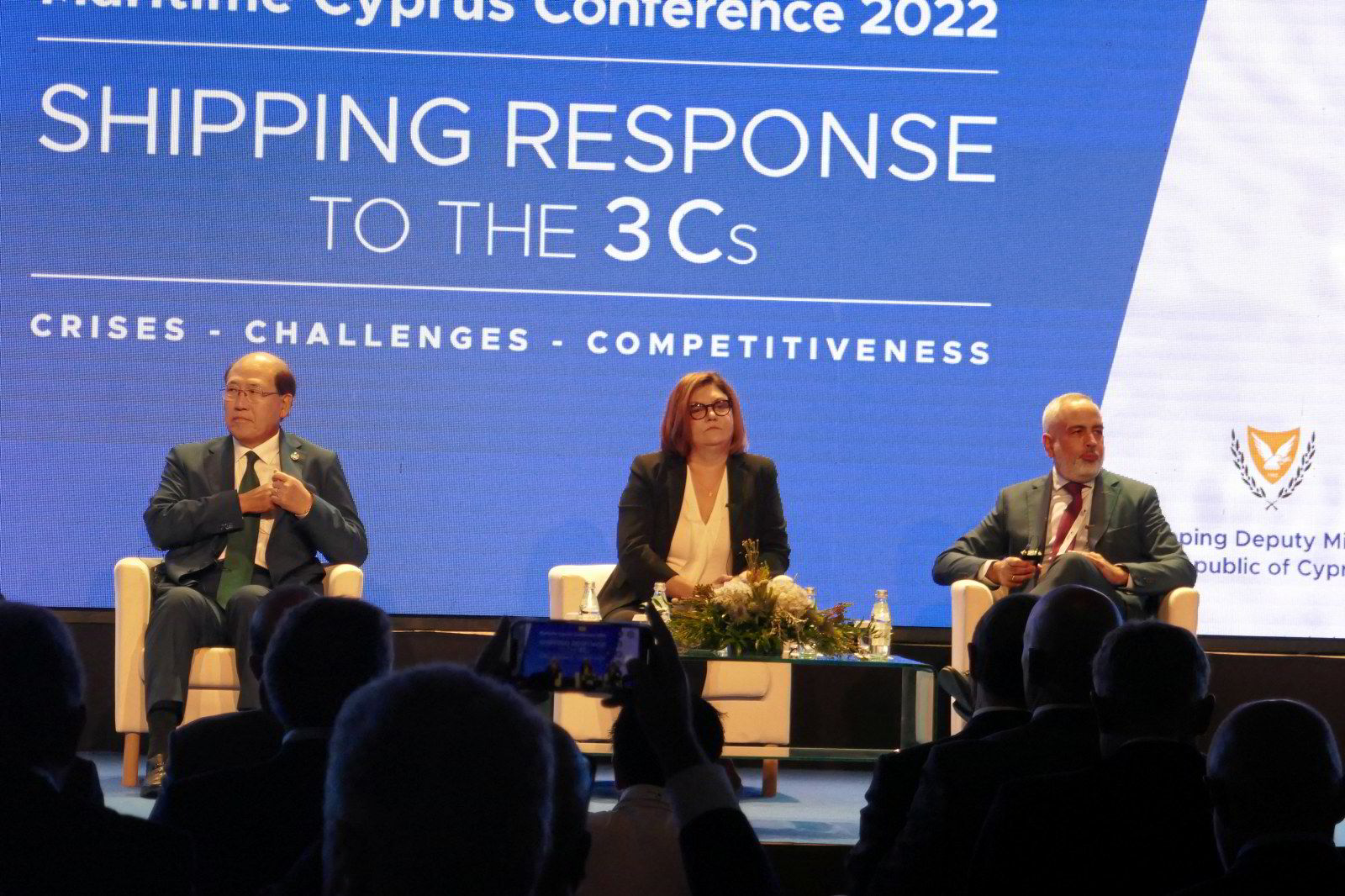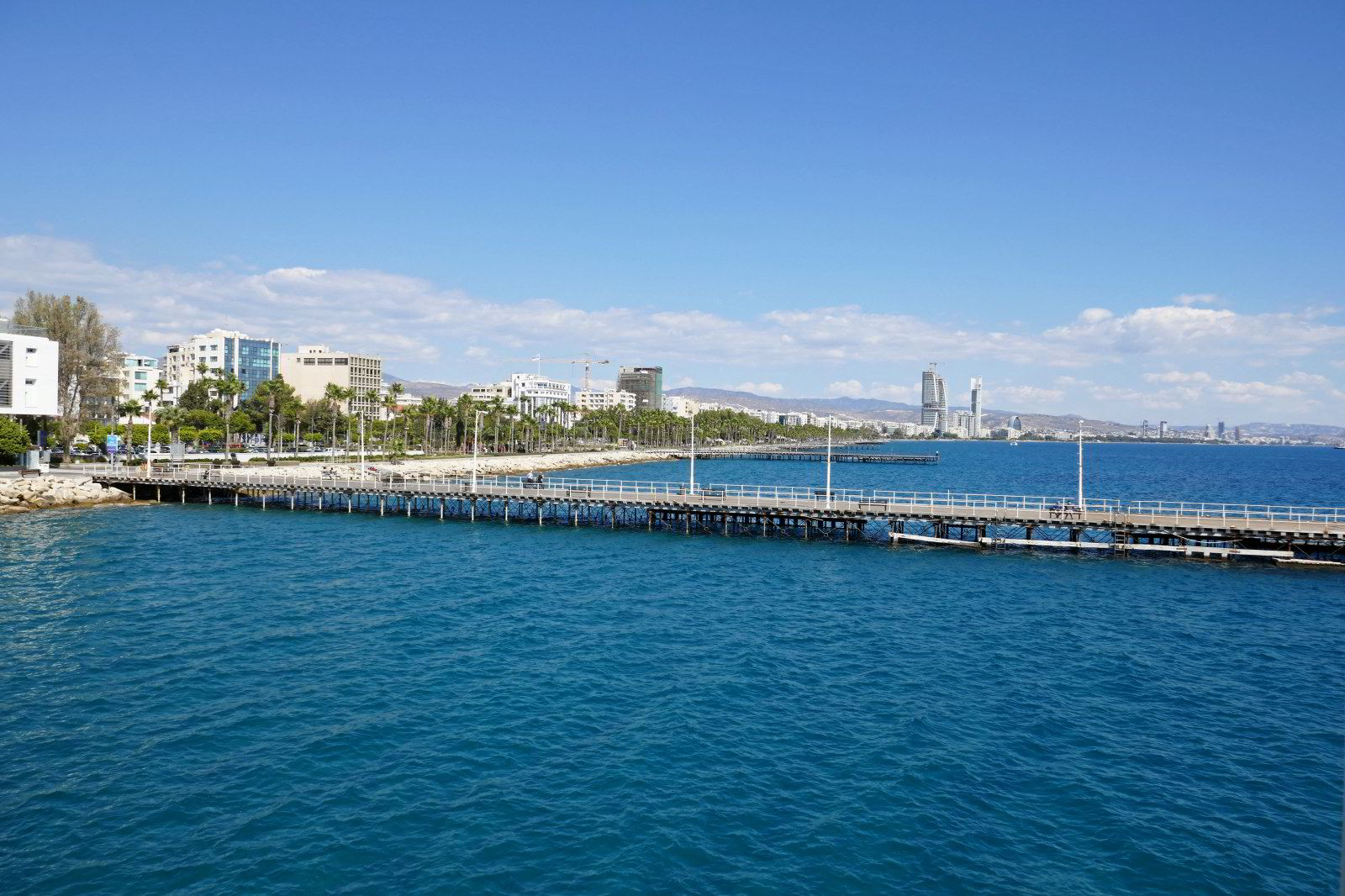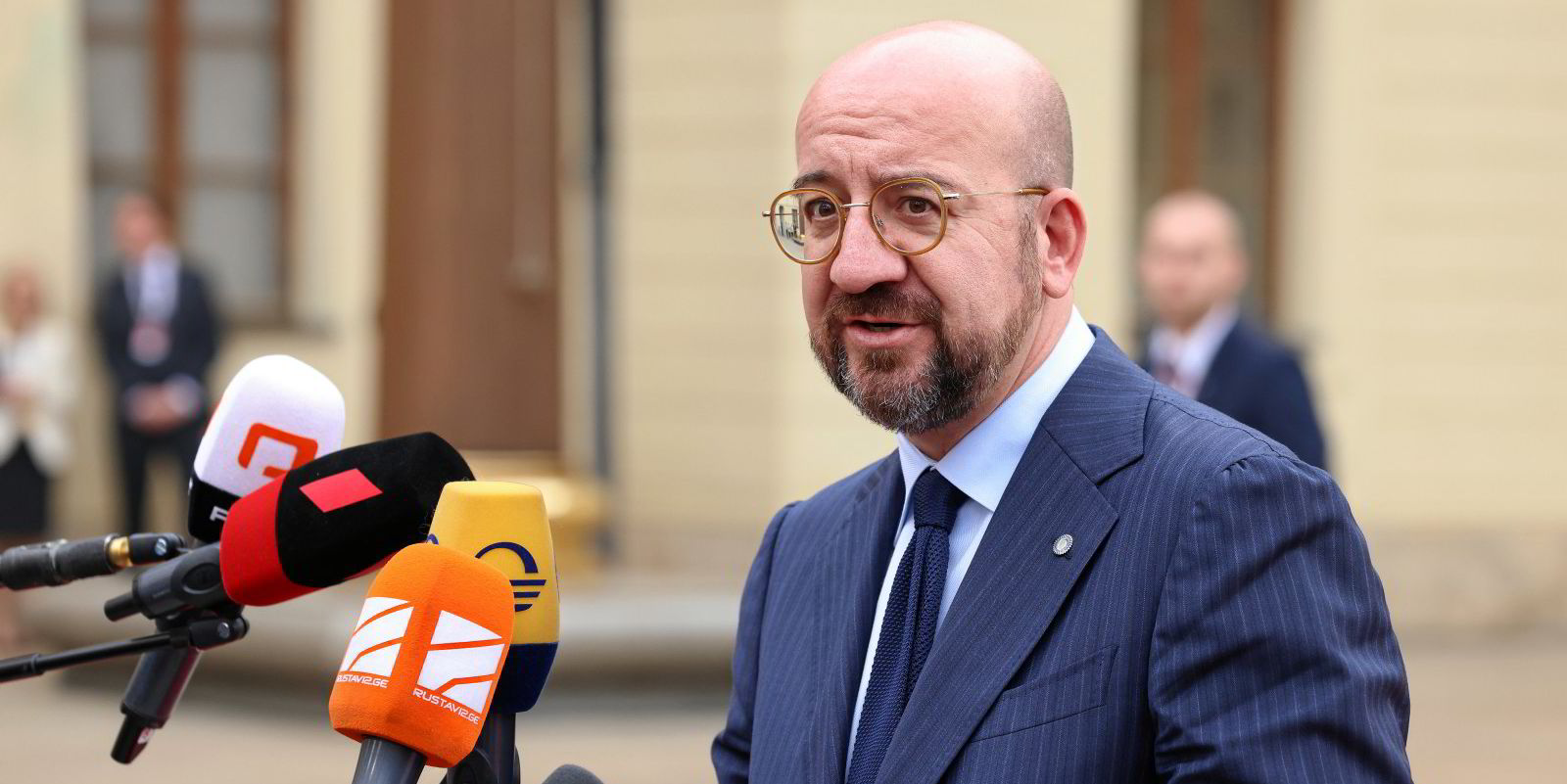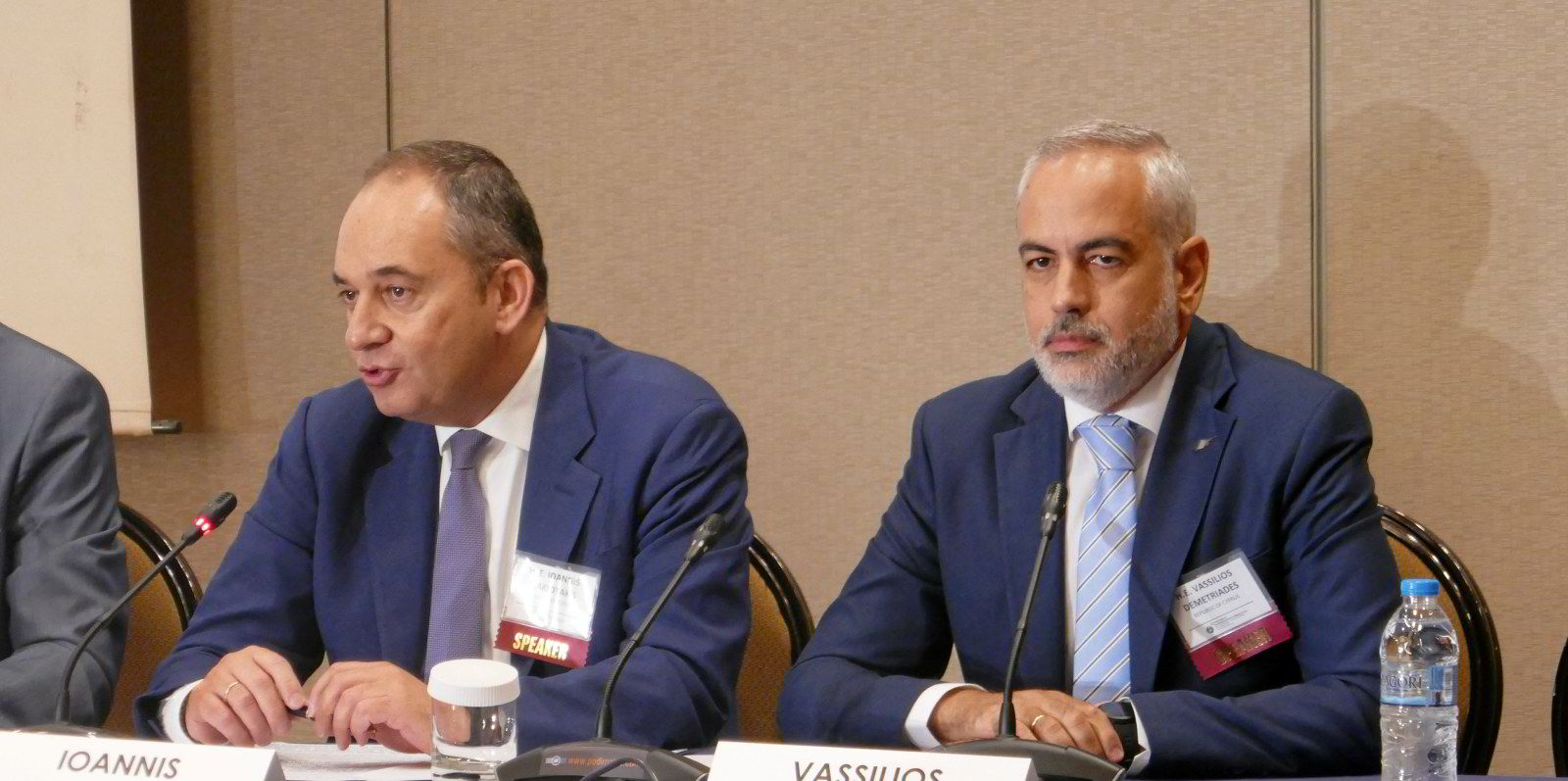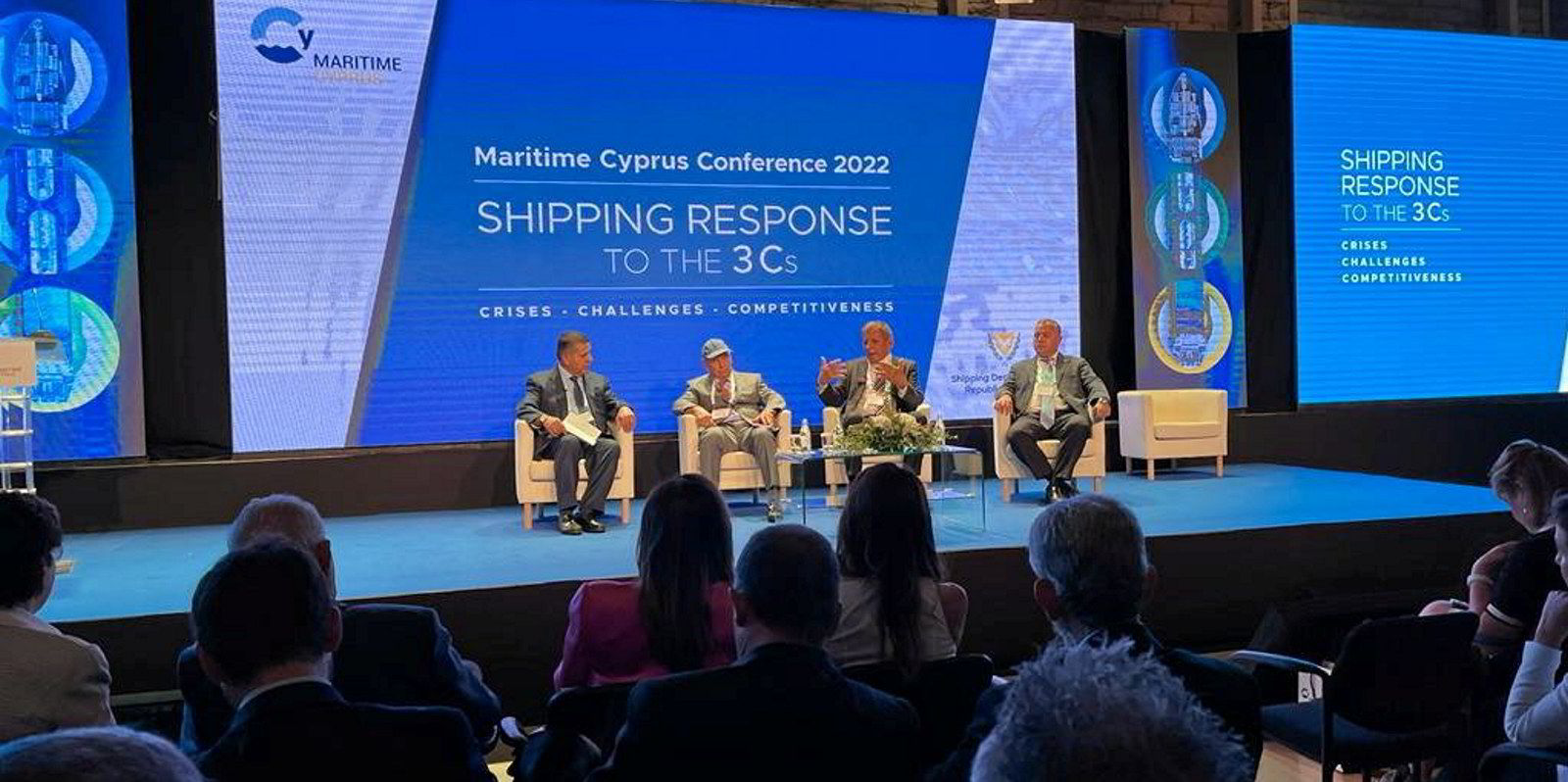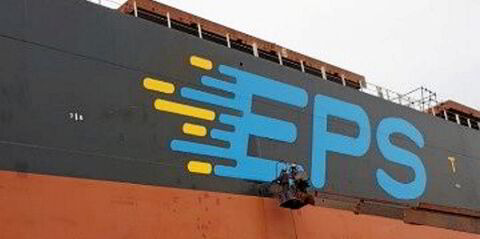Cyprus, a member of the European Union and one of its biggest ship management hubs, said on Monday that sanctions against Russia should not put the competitiveness of the continent’s fleet at risk.
Speaking at the Maritime Cyprus Conference opening in Limassol, the country’s top government officials sought a global implementation of the measure in order to avoid pulling the carpet from under the feet of the European fleet.
The sanctions’ impact on EU member states should not exceed the cost imposed on Russia itself, the country’s president Nicos Anastasiades said.
“We remain firm in our position [of] maintaining to the maximum extent possible the competitiveness of European shipping,” he added.
His statements came after the EU passed legislation last week that allows for the eventual imposition of a cap on the price of Russian oil later this year.
Under the plan, European shipowners, brokers, insurers and bankers would be barred from engaging in Russian oil transport to non-EU countries, unless Moscow sells the crude below a level that has still to be determined.
What individual EU states such as Cyprus think about the scheme matters because national governments will have ample scope to water down or sharpen it.
That is because any price cap plan is subject to final approval by the European Council — the EU’s top decision-making body in which member states’ governments are represented and usually take decisions unanimously.
No quick decisions
The preliminary legislation unveiled on Thursday has set off a flurry of diplomatic activity about how the details of a price cap mechanism might look.
This issue was discussed on Monday in Limassol between Cyprus’ minister in charge of shipping, Vassilios Demetriades, and Adina Valean, the European Commissioner for Transport.
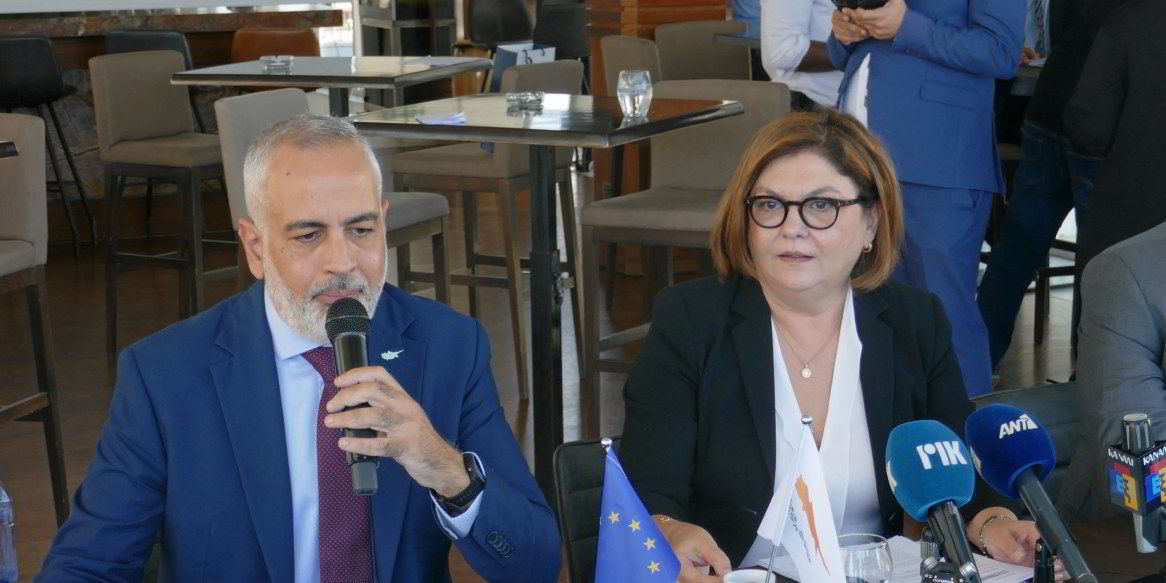
Cyprus and other maritime nations such as Greece and Malta have managed to introduce language in the EU text released on Thursday which sets out tough criteria for a price cap plan to be adopted.
According to the text, the EU Council will “take into account the effectiveness of the measure in terms of its expected results, international adherence to and informal alignment with the price cap mechanism, and its potential impact on the Union and its Member States”.
“We’re really glad to see that most of our suggestions were reflected,” Demetriades told reporters after meeting Valean.
Working out these tough criteria will take time and the EU Council will not be ready to take a decision on a price cap in its next regular meeting in Brussels on 20 October.
“There’s work to be done in the forthcoming weeks to make this measure effective, transparent and uniform to [be] applied for everybody,” Demetriades said.
Speaking alongside Demetriades, Valean said that the next step is for the G7 advanced economies to agree on the price cap to be introduced.
“The work is ongoing, I can assure you,” she said, adding that participation of G7 nations with big fleets, such as Japan, will ensure effectiveness of the measure.
Demetriades, however, said that other nations must join as well.
“Having only the EU and the G7 fleet on board is not enough,” he said, adding that wider application is necessary in order to minimise loopholes.
Greece and Cyprus have already expressed concerns that, if mishandled, the measure could lead to deflagging and shrink the EU-controlled commercial fleet.
Major shipowners speaking separately in Limassol said relocation was a real concern if the EU puts the screws on shipping out of political, tax or environmental considerations.
“Europe has this treasure in its hands — it shouldn’t kill it,” shipowner Polys Hajioannou said.
Speaking at the same panel, fellow shipowner George Procopiou tried to drive the same point home by saying that maritime operations can be conducted anywhere.
“Our country is the oceans — the land is something temporary to take what you need and sail again,” he said.
Unfounded fears
Several shipping executives have separately warned that their companies can hardly be expected to be able to verify the price at which their charterers or shippers have acquired the Russian oil and that the latter could also provide fake attestations.
According to Demetriades, Cyprus has already submitted to the EU a document with 36 questions on how the cap would be implemented.
These questions aim at clarifying the responsibility of operators, shipowners, flag states, as well as coastal states in order to cover ship-to-ship transfers as well.
Cyprus filed the questionnaire after the EU pledged last week to thoroughly consult member states and industry representatives before adopting an oil price cap.
Valean said she valued the input from maritime nations such as Cyprus, Greece and Malta.
Given “their expertise and knowledge in the sector, I trust that the sanctions will be tailored in such a way that… they will affect Russia and not our community”, she said, adding: “I hope the fears will remain unfounded.”

